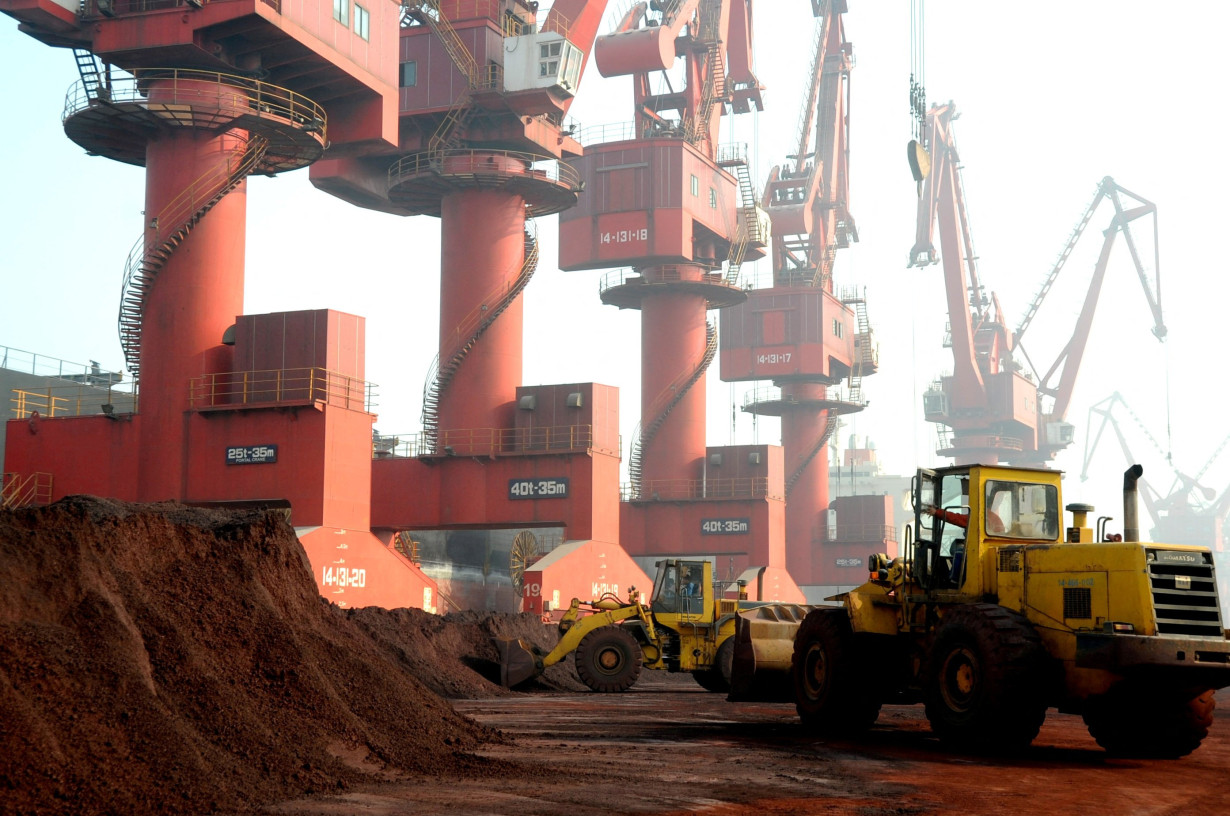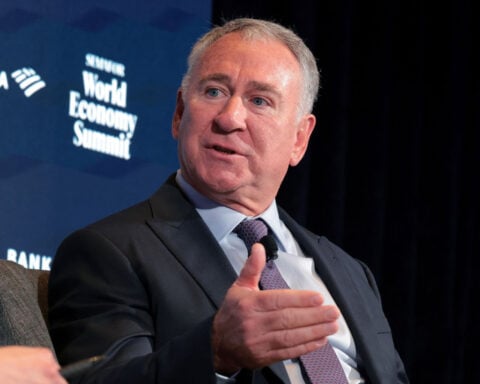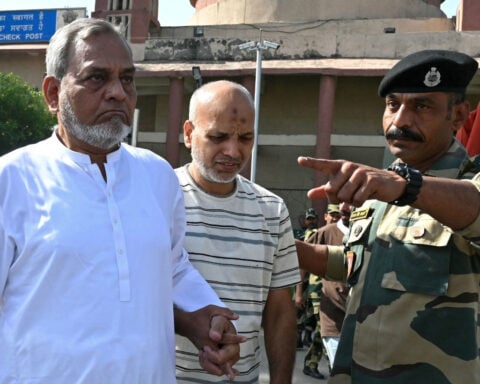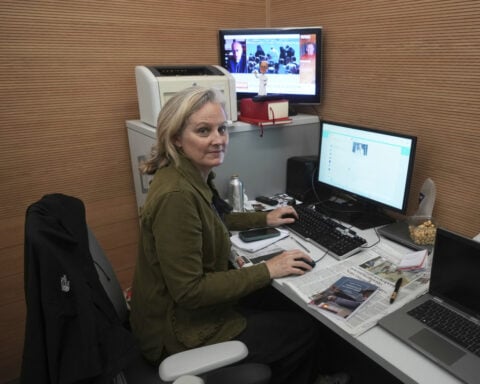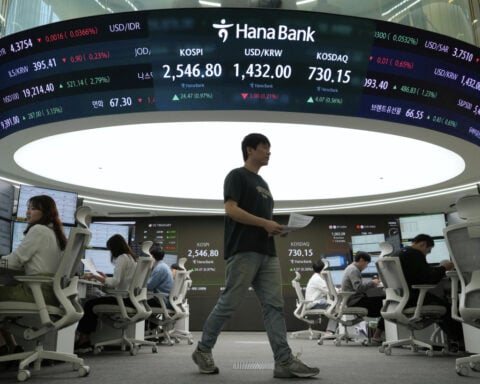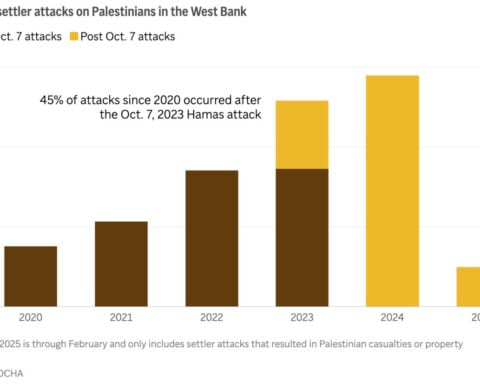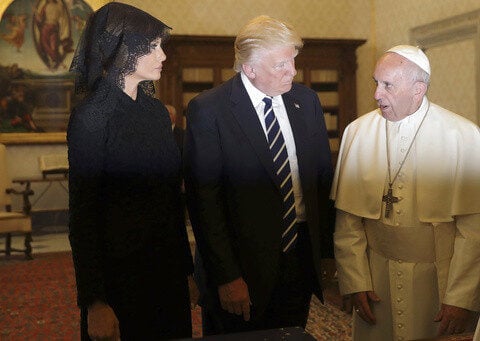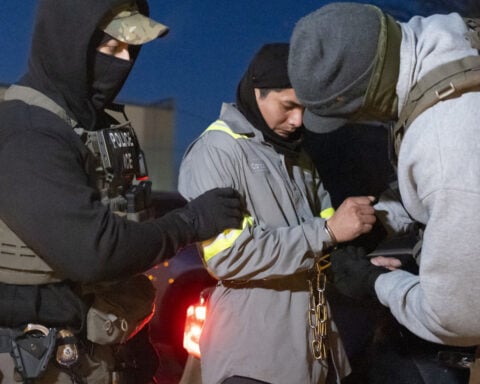By Ernest Scheyder and Costas Pitas
(Reuters) - U.S. President Donald Trump on Tuesday ordered a probe into potential new tariffs on all U.S. critical minerals imports, a major escalation in his dispute with global trade partners and an attempt to pressure industry leader China.
The order lays bare what manufacturers, industry consultants, academics and others have long warned Washington about: that the U.S. is overly reliant on Beijing and others for processed versions of the minerals that power its entire economy.
China is a top global producer of 30 of the 50 minerals considered critical by the U.S. Geological Survey, for example, and has been curtailing exports in recent months.
Trump signed an order directing Commerce Secretary Howard Lutnick to begin a national security review under Section 232 of the Trade Expansion Act of 1962. That is the same law Trump used in his first term to impose 25% global tariffs on steel and aluminum and one he used in February to launch a probe into potential copper tariffs.
Asked for comment on the order, China's foreign ministry said on Wednesday that "artificial interference in the supply chain violates the laws of the market economy and international trade rules."
U.S. dependency on minerals imports "raises the potential for risks to national security, defense readiness, price stability, and economic prosperity and resilience," Trump said in the order.
Within 180 days, Lutnick is required to report his findings to the president, including whether to impose tariffs. Were Trump to then impose a tariff on a nation's critical minerals, the rate would supersede the "reciprocal" tariffs Trump imposed earlier this month, according to the White House.
The review will assess U.S. vulnerabilities for the processing of all critical minerals - including cobalt, nickel and the 17 rare earths, as well as uranium - how foreign actors could be distorting markets, and what steps could be taken to boost domestic supply and recycling, according to the order.
The U.S. currently extracts and processes scant amounts of lithium, has only one nickel mine but no nickel smelter, and has no cobalt mine or refinery. While it has several copper mines, the U.S. has only two copper smelters and is reliant on other nations to process that essential metal.
The probe may create an opportunity for some friendly supplier nations angling for exemptions, given Washington has previously flagged potential tariff carve outs for energy and other minerals that are not available domestically.
"Given Australia is a trusted supplier of critical minerals essential to U.S. industries, this investigation presents an opportunity for the nation to strengthen its position as a reliable supplier of these essential resources," said Tania Constable, CEO of the Minerals Council of Australia.
"But we cannot afford to be complacent. Australia must negotiate a framework that delivers mutual benefit to both Australian producers and U.S. industries, while also continuing to forge and deepen strategic partnerships with other like-minded nations."
Rare earths producer Australian Strategic Materials, which has been supported by U.S. government funding, welcomed any efforts to build an alternative supply chain for critical minerals, "particularly in the current environment where supply of critical minerals is dominated by one state player," its CEO Rowena Smith told Reuters.
The company can support Washington in building domestic capability by replicating its Korean processing plant in the United States, she said.
The order is the latest in Trump's effort to jumpstart U.S. minerals production and processing. The president last month signed an order directing federal agencies to create a list of U.S. mines that could be quickly approved and federal lands that could be used for minerals processing.
Still, it takes years to build a new mine and processing facility, which has sparked concern about where the U.S. could procure minerals were tariffs broadly imposed.
"Ultimately the U.S. gets certain minerals from China because there are not alternative supplies elsewhere," said Gracelin Baskaran, director of the critical minerals security program at the Center for Strategic and International Studies.
'FULL SCOPE'
Beijing earlier this month placed export restrictions on rare earths in response to Trump's tariffs, a move that further exacerbated supply concerns amongst Trump officials.
Rare earths are a group of 17 elements used across the defense, electric vehicle, energy and electronics industries. The United States has only one rare earths mine and most of its processed supply comes from China.
The restrictions from China were seen as the latest demonstration of the country's ability to weaponize its dominance over the mining and processing of critical minerals after it put outright bans on the export of three other metals last year to the U.S. and imposed export controls on others.
Chinese mining companies across the globe have been flooding markets with cheap supplies of critical minerals like rare earths in recent years, fueling calls from industry and investors for Washington to support U.S. projects.
The White House also said Trump was focused on closing tariff loopholes. As with other products, the supply chain for critical minerals processing involves multiple countries.
"An effective policy should take into account the full scope of the supply chain to level the global playing field," said Abigail Hunter, executive director of SAFE's Center for Critical Minerals Strategy.
(Reporting by Ernest Scheyder; Additional reporting by Costas Pitas, Fransiska Nangoy, Melanie Burton and Amy Lv; Editing by Sonali Paul, Saad Sayeed and Tomasz janowski)

 Trump has begun another trade war. Here's a timeline of how we got here
Trump has begun another trade war. Here's a timeline of how we got here
 Canada's leader laments lost friendship with US in town that sheltered stranded Americans after 9/11
Canada's leader laments lost friendship with US in town that sheltered stranded Americans after 9/11
 Chinese EV giant BYD's fourth-quarter profit leaps 73%
Chinese EV giant BYD's fourth-quarter profit leaps 73%
 You're an American in another land? Prepare to talk about the why and how of Trump 2.0
You're an American in another land? Prepare to talk about the why and how of Trump 2.0
 Chalk talk: Star power, top teams and No. 5 seeds headline the women's March Madness Sweet 16
Chalk talk: Star power, top teams and No. 5 seeds headline the women's March Madness Sweet 16
 Purdue returns to Sweet 16 with 76-62 win over McNeese in March Madness
Purdue returns to Sweet 16 with 76-62 win over McNeese in March Madness
